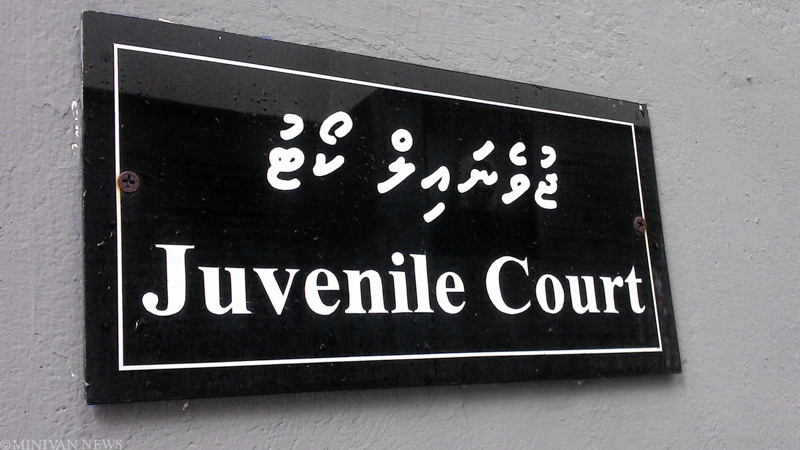The juvenile court has today sentenced two young men to death over a murder committed when the pair were minors, but the two are unlikely to face the death penalty.
The two unnamed 19-year-olds denied charges over the stabbing and death of Hussain Waheed in Malé in December 2013. They were 16 at the time.
Waheed had died of heart failure due to the stab wounds to his chest.
Speaking at the UN human rights council last week, legal affairs secretary at the president’s office, Aishath Bisham, said “it would be legally impossible to issue the death sentence” if the accused denies murder charges at any stage of prosecution.
One of the suspects was charged with murder while the other was charged with being an accomplice to the murder. Another 14-year-old was arrested at the time and charged with assaulting an individual on the scene.
The juvenile court sentenced the pair based on testimony by four eyewitnesses. All nine heirs of the victim have asked the court to implement the death penalty.
In 2014, the Maldives repealed a six-decade-old de facto moratorium on the death penalty, ostensibly to tackle a surge in fatal stabbings. Over 30 people have been killed in violent crimes in the past seven years.
Under the new regulations, individuals as young as seven years of age can be sentenced to death if convicted of wilful murder.
The juvenile court has now sentenced a total of four young men to death for murders committed when they were minors. Two young men convicted of wilful murder in the death of Abdul ‘Bobby’ Muheeth were also sentenced to death in May 2013.
The government says capital punishment can only be enforced if all three tiers of the judiciary find the accused to be guilty and if all heirs of the victim request the death penalty. Bisham also said the president is required to review if due process was followed before he enforces the death sentence.
The last person executed in the Maldives was Hakim Didi, who was found guilty of practicing black magic in 1953.
The common practice has since been for the president to commute all death sentences to life imprisonment through powers vested in him by the Clemency Act. The new regulations has revoked president’s authority.
Several countries at the Universal Periodic Review, including France, the United Kingdom, Ukraine, Namibia, Spain, Australia and Montenegro expressed concern over Maldives’ decision to end the unofficial moratorium on the death penalty.







As in this current season Adaalth is on the same side as Denmark and EU, a fatwa against death sentence is expected from Adaalath.
Ahem! Add youth bulge + sham judiciary + activism + death penalty = and draw your own conclusions.
"The last person executed in the Maldives was Hakim Didi, who was found guilty of practicing black magic in 1953."
This is incorrect; the death penalty has been implemented and is being used by state-sponsored death squads to kill anyone suspected of anti-government activity. Those 'random stabbings' by gangsters who say 'olhigen'... is that.